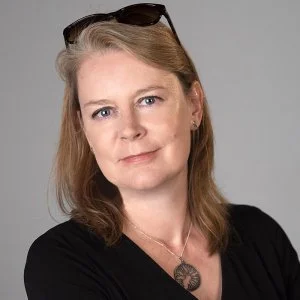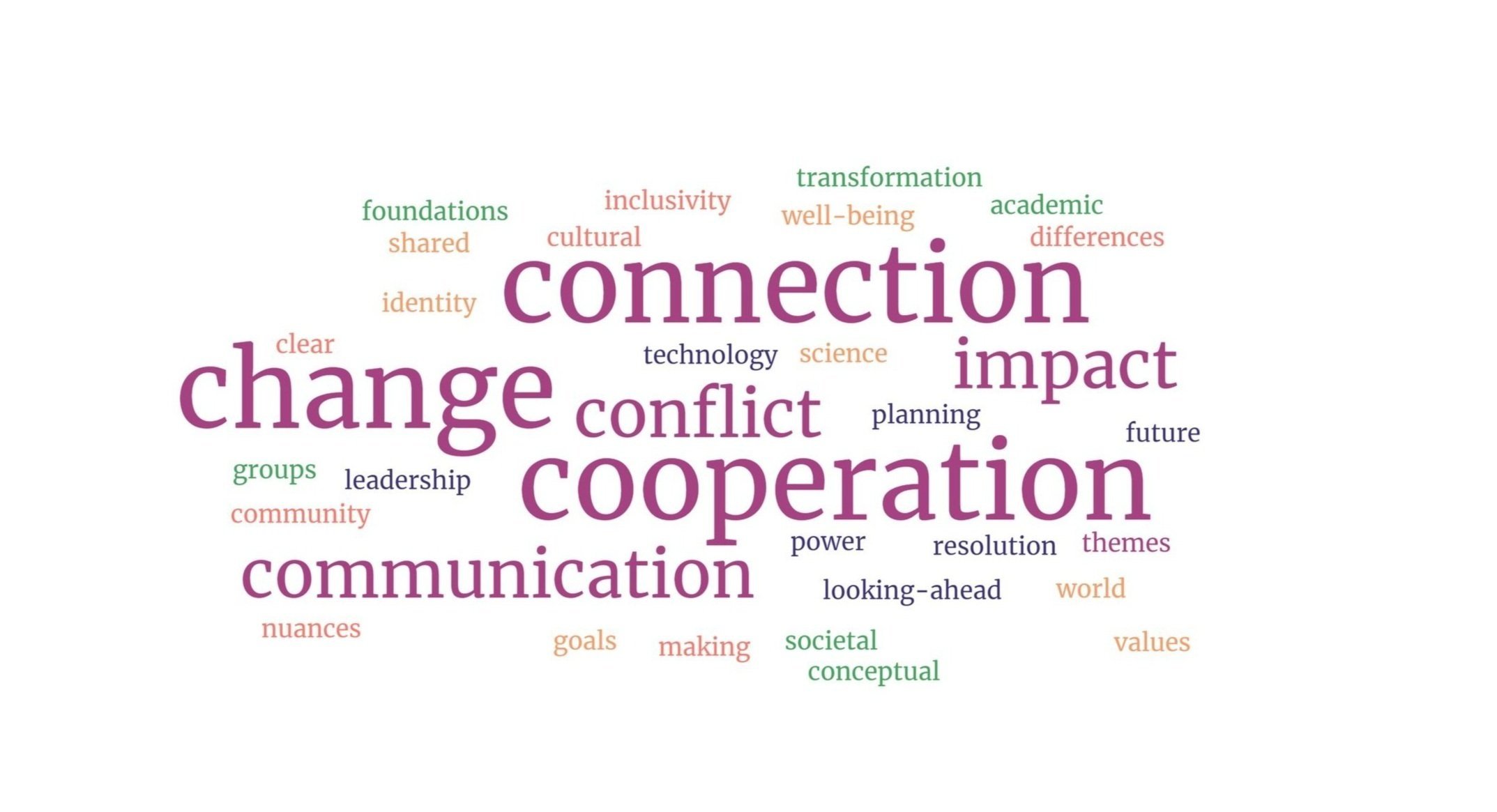
Retrospective:
Summer Workshop
22nd-23rd June 2023
In June of 2023, we held our first summer workshop on the theme ‘The Future of Groups’ in Leeds, England.
Attendees comprised UKRI Future Leadership Fellows (FLF) and their research teams from a wide range of disciplines and research organisations. Research areas ranged from disaster and emergency collective responses to occupational constructs in archaeology and construction, and from user trust in AI healthcare to human-animal or human-plant interactions, and many more.
The aim of the workshop was to provide an opportunity for discussion and collaboration between members on the network, explore the directions it might grow in and the resource it can become. The workshop was hosted at The Lost and Found Club and The Queens Hotel, Leeds, and involved a variety of activities including whole group discussion, collaborative group tasks, and presentations by guest speakers.
This retrospective report provides an overview of those activities, as well as a summary of the Summer Workshop’s outputs and feedback we received from the post-workshop survey. Its findings suggest that the Summer workshop was enjoyed by its attendees and that there is a desire for future events involving FLF’s and their teams, as well as events that include community practitioners or other non-academics.
Members of the Groups Network
(Back row, left-right: Dr Yunhe Tong (University of Edinburgh), Dr Guillermo Diaz de Liano (MOLA), Ellen Falkingham (University of Oxford), Dr Martha Newson (Universities of Oxford and Greenwich), Sam Vo (University of Edinburgh), Venetia Brown (The Open University), Dr Giulia Palazzolo (University of Warwick), Dr Linus Peitz (University of Kent), Dr Uche Okpara (University of Greenwich).
Front row, left-right: Retno Larasati (The Open University), Sayaka Hinata (University of Edinburgh), Dr Anne Templeton (University of Edinburgh), Kat Helming (University of Warwick))
Our Attendees
15
4
Attendees
Future Leader
Fellows
Universities and Organisations Represented
8
Post Doctoral
Researchers
3
PhD Students
Workshop Activities
Solving The Questions of the Future
In small, interdisciplinary groups, we created mind maps as we explored what the biggest questions faced by groups in the future might be. We then perused the mind maps of the other groups and voted using post-its on the questions we wanted to discuss in more depth as a whole group discussion. We also later engaged in a full group discussion of the role of our research on groups in the future research landscape, and how The Groups Network might be used to inform our research, facilitate knowledge exchange, and share our findings.




Other Collaborative Group Activities:
Introductory elevator pitches from all network members
A ‘speed dating’ activity – 1-to-1 conversations, rotating to a new partner at timed intervals, an opportunity to get to know each other and our research at speed.
A competitive small group mock research proposal and funding application presentation
A research sandbox – an open research discussion and space for collaborative opportunities to emerge
Guest Speakers
End of Workshop Summary
For our final activity, we split up into small groups to reflect on our discussions and identify the common themes that had arisen, the needs of the Groups Network and its members, and the skills possessed within the group. We then discussed our thoughts as a whole.
From this, we identified themes, needs and skills.
Cooperation and conflict resolution
Connection and community
Interdisciplinary and international, attending to cultural nuances
Impact (societal and academic)
Change/transformation
Technology and social groups
Themes
Needs
Regular and sustained interactions to share ideas and foster collaboration, speakers, allowing space for feedback on ideas and research (‘think tank’, sandbox)
Training on communication with diverse audiences, especially ensuring accurate understanding
Resources that we can access to collaborate, share skills, share networks and contacts
Early career researcher needs: meeting like-minded people from other disciplines, training for grant writing and finding grants
Engagement with a diverse range of voices including those outside of academia
Mentoring abilities
Interdisciplinary knowledge
Diverse Research Tools and Experience
Communicating
Organisational and Project Management Skills
Skills
Feedback
Feedback on the summer workshop was collected during group discussion as part of the end-of-workshop summary exercise, and also through an anonymous post-workshop online survey circulated the week following the event.
What the attendees enjoyed about
The Summer workshop
The interdisciplinary, creative, and collaborative environment
The opportunity to hear from voices both inside and outside academia
The opportunity to network and develop collaboration skills
The format of the activities and the engagement they fostered
The organisation of the event
The choice of venue and location
“What did you enjoy about the Summer Workshop?” -
What attendees said:
What the survey tells us about enjoyment and longer term collaboration
Of all respondents to the post-workshop survey (8 of 15 attendees), all responded that they enjoyed the summer workshop ‘a lot’ or ‘a great deal’, and on a Likert scale of 1 (strongly disagree) - 10 (strongly agree), all respondents indicated that they would be likely to recommend the Groups Network to a colleague with shared research interests, with over 85% of respondents providing scores of 8 or higher.
However, survey responses also indicate that there is some uncertainty whether the Summer Workshop helped attendees develop collaborative opportunities beyond the event, although generally, most responses to questions relating to this were positive.
Of all responses to the question ‘Did the Summer Workshop help you develop collaborative opportunities?’, with answers on a Likert scale with 5 values ranging from ‘Definitely no’ to ‘Definitely yes’, 25% of respondents responded ‘Might or might not’, 50% responded ‘Probably yes’, and 25% ‘Definitely yes’
Some respondent explanations, pointed to collaborative opportunities as being something that could arise from medium-longer term engagement with The Groups Network, and that it was difficult to tell the extent of the benefits of the workshop as regards collaborative opportunities so soon after it had occurred. This reiterates the need expressed during the end-of-workshop summary activity for regular and sustained interactions to share ideas and foster collaboration between members of The Groups Network.
‘Did the Summer Workshop help you develop collaborative opportunities?’ -
What attendees said:
What the network would like to see at future events
‘A point we can keep coming home to’ – reliable, regular meetings
More time to network, hear about each other’s research, and find opportunities to collaborate – perhaps a specific communication and cooperation event or a ‘think tank’ space
Speakers
From a range of academic and non-academic backgrounds and disciplines, including transformative change
With practical (non-academic) experience in our research areas
To explore opportunities for collaboration with and who are likely to benefit from our work and can say what they need from us
‘A virtual public living room’ – an online space for chatting, contributing, and sharing resources
Opportunities to develop our skills and collaborate whilst doing so (e.g. communication training)
Tight themes for each event to be structured around
Name tags or information about event attendees and activities prior to the event
Rotation of organisers, locations and grant applications
Who we would like to include as part of the Groups Network in the future
In the post-workshop survey a majority of respondents also expressed that they would be interested in attending future events that include community practitioners or other non-academics (75%), and in future conferences or workshops for FLF Fellows and their teams (63%). With some also expressing interest in a conference or workshop which would included others beyond the FLF network, and one participant explicitly suggesting ongoing activities to strengthen the research group.
During the group discussion, it was also determined that including members from outside of academia in The Groups Network would depend on UKRI funding, but there may be a possibility for us to have honorary members (including former postdocs, etc). Depending on interest this may be something we explore in the future.















